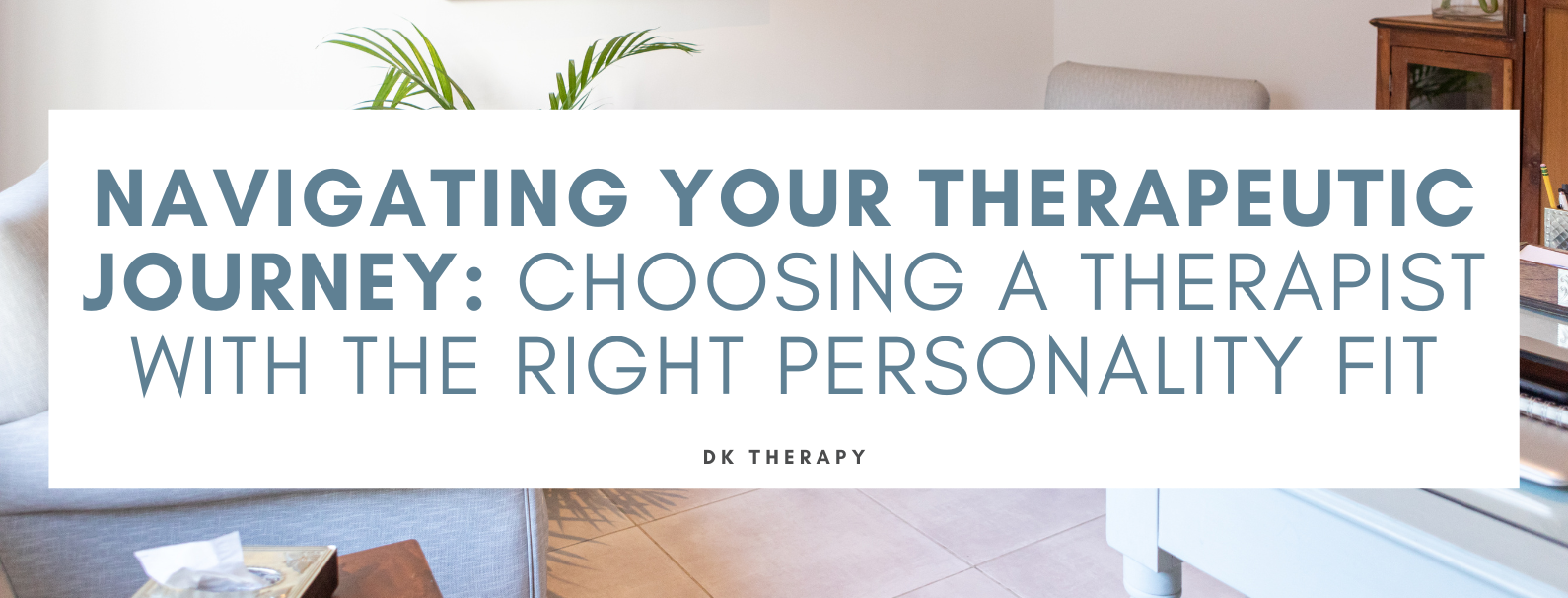
Choosing to seek therapy is an important step toward self-discovery and healing, and finding the right therapist is a crucial component of the process. With so many offerings available, it can be difficult to find a therapist who is right for you, but this short guide should help you narrow down your options.
Let’s take a look at how to find a therapist with the right personality fit.
 Ask for Advice
Ask for Advice
If you’re just starting out on your journey to find a therapist that’s right for you, consider asking friends and family about their experiences with therapy. You could ask for general recommendations or if you already have a therapist in mind, you could ask someone you trust if they’ve had any experience with the therapist in question.
Know Your Goals and Preferences
Knowing what you want out of therapy is an essential part of finding the right therapist for your needs. Take some time to outline your therapy goals before you start seeing a mental health professional, because this way, you’ll at least have an idea of what you expect to gain from the experience.
In addition, it’s a good idea to keep some of your preferences in mind when shopping around for providers. For example, do you want a therapist who is the same gender or roughly the same age as you?
Consider Your Cultural Needs
We all come from distinct cultural backgrounds and our cultures play a big part in who we are as people. Because of this, you’re going to want a therapist who understands and has experience with your cultural needs. For example, if you’re part of the LGBTQ+ community, it’s a good idea to seek a therapist who has significant experience working with LGBTQ+ clients.
Ask Questions
Ask plenty of questions during your appointments and be aware of the therapist’s responses. Having a positive rapport and easy back-and-forth conversations is a good sign that you’re working with a therapist whose personality will closely match what you need in a mental health professional.
Ideally, you’ll want to work with a therapist who is open and willing to answer all of your questions with a positive attitude. If the individual you’re speaking with seems hesitant or annoyed when you voice your concerns, it’s probably best to keep looking.
A couple of questions you could ask during your first appointment include:
- How long have you been a therapist?
- Which therapy methods do you use?
- Do you feel that this is a good fit?
- How often would you like to meet with me?
- Can you help me achieve the goals I have listed?
Pay Attention to Your Responses
Be aware of how you feel during your appointments. Are you comfortable while talking to the therapist? Do you find it easy to exchange information back and forth? Do your conversations flow naturally during the sessions?
When you have chosen a therapist whose personality meshes well with yours, your conversations should be easy and natural. You should feel comfortable talking and feel that the therapist understands where you’re coming from.
Evaluate Your Visits
Think about how you feel after your visits. While achieving your therapeutic goals takes time, you should at least feel like you’re making progress at the end of your sessions. If your feelings are positive and you’re looking forward to your next session, you’re likely working with a therapist whose personality meets your needs.




